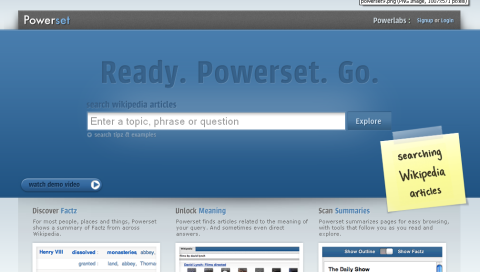Microsoft's search plan: It's about semantics and possibly for naught

Microsoft's search plan apparently revolves around semantics. The software giant picked up Powerset, a natural language search provider for an undisclosed sum.

Rumors about Powerset's exit strategy have been percolating for weeks and given Microsoft's standing in search the deal seems like a no-brainer. Whatever Microsoft paid it doesn't even register as a rounding error in the P&L.
According to Microsoft's Satya Nadella, senior vice president of search, portal and advertising, Powerset's team remains in tact and will add to the natural language technologies Microsoft Research has been cooking up.
In many respects, the acquisition is a talent grab and Powerset is happy to oblige. Nadella writes:
We're buying Powerset first and foremost because we're impressed with the people there. Powerset CTO and cofounder Barney Pell is a visionary and incredible evangelist. When he introduced our senior engineers to some of the most senior people at Powerset — Search engineers and computational linguists like Tim Converse, Chad Walters, Scott Prevost, Lorenzo Thione, and Ron Kaplan — we came away impressed by their smarts, their experience, their passion for search, and a shared vision.
Makes sense. It sure beats plastering "we're hiring search folks" ads all over the Web.
Also see: Powerset’s search: Does it deliver?
Microsoft's big point is that search needs to evolve so queries get answered on the first click. For that to happen you need some natural language love. Nadella says "these problems exist because search engines today primarily match words in a search to words on a webpage. We can solve these problems by working to understand the intent behind each search and the concepts and meaning embedded in a webpage."Sound familiar? You bet. That's the same "intent" spiel that Google and Yahoo use every quarter, every presentation and every press conference about search.
Simply put, Microsoft gets some talent to throw at closing its search gap. And there's something to be said for that. However, Microsoft can reinvent search, but it's still running up a natural Google monopoly. The analogy here is Windows: Microsoft didn't have the best operating system on the planet. It just had the best positioned one. In search, the tables are turned in Google's favor. I don't see how Powerset will change that equation.